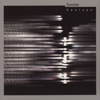Just how experimental is techno music? For a genre that fancies itself so forward thinking, most techno (for better or worse) chugs along as it has for almost 30 years. Many simply claim their work is “experimental” through references to half-century old forms like musique concrète (something Atomâ„¢ would say is as “progressive as [his] TV set”), but some do quite an admirable job of bringing something different to the table. Peter Van Hoesen’s sound design prowess gives his tracks an edge that most techno doesn’t have, and Yves De Mey’s engaging album for Sandwell District certainly shook things up over at the most-loved techno label of today. Yet I wasn’t sure quite what to expect from the pair’s long-in-the-works debut album as Sendai. The project has, up until this point, released some very good club tracks, but the more outré aspects of the duo’s respective musical histories seemed to lay dormant in the background.
Geotope is the middle ground between the visceral impact of Van Hoesen’s best work and De Mey’s intricate sonic structures, and is certainly one of the best sounding records I’ve heard yet this year. From dense, groaning low end to piercing sine waves, opener “Terminal Silver Box” sketches the aural setting as anywhere and everywhere in the audible range, while structurally pledging fealty to the 4/4 pulse without making any explicit references to it. The record plays out like some of Autechre’s best post-Gantz Graf material with a clearer narrative arc: melodies are fleeting but no less present, and individual tracks build up and break down in vaguely similar ways to more standard techno fare. “Following The Constant,” for instance, has a fairly straightforward groove, atop which a drone shifts and slides through time, while the insistent kick and tumbling white noise hi-hats of “EP2010-4” almost sound (in context, of course) like peak time at Berghain.
“Emptiness Of Attention” closes out the album in fine form, with slowly undulating percussive noises and bass tones winding themselves around each other as every so often a faint four-chord progression is heard. Sendai reveal the progression in full in the last two minutes of the record, letting it play out a handful of times, each time catching the listener off guard and causing more impact than the previous iteration. Van Hoesen and De Mey have made some exceedingly clever music with Geotope, at once grabbing the complexities that keep listeners intrigued, while never forgetting the physicality that defines techno. There are a handful of artists and labels operating in this area, but only a few are able to seamlessly connect the dots between something academic and something earnest. Sendai have, and you’ll want to immerse yourself in the results for quite some time.















